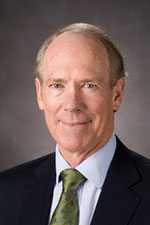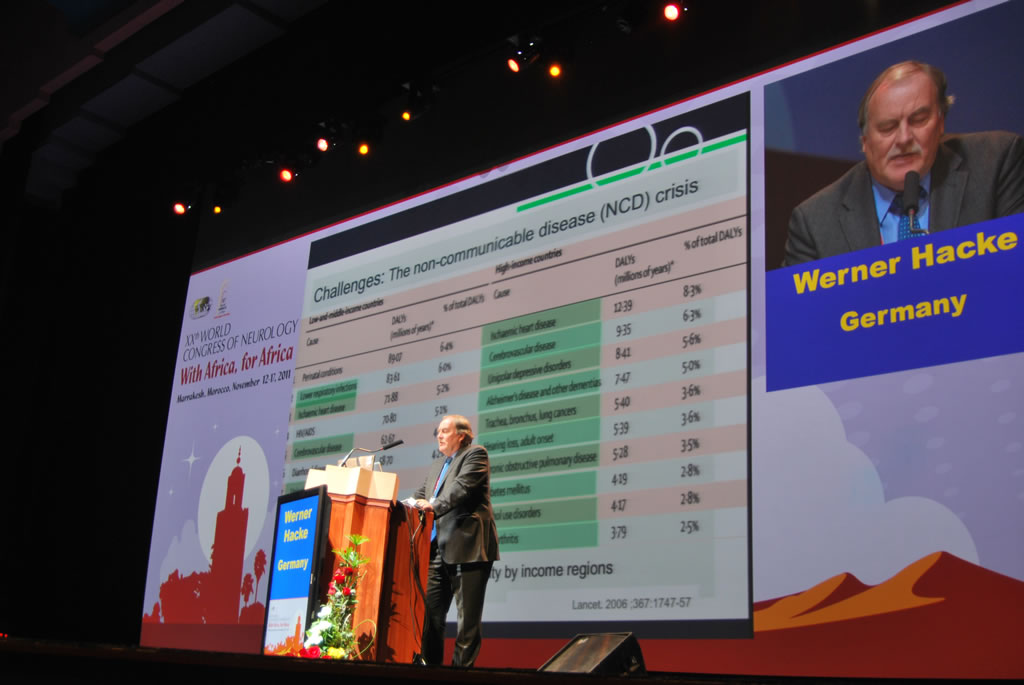Original article by Prof. William Carroll published 11 December 2018 in World Neurology Vol 33 No. 6

William Carroll, MD
The World Congress of Neurology (WCN) is the jewel in the calendar of the World Federation of Neurology (WFN). A just completed site visit to Rome and the final site visit for Dubai scheduled for December prompted the topic for this issue of the President's column. Until the 2011 Congress held in Marrakesh, Morocco, World Congresses had been held every four years. From 2011, the WFN recognised that with the increasing number of high quality neurology meetings the WCN was at risk of being made relatively invisible. The 2011 WCN was a test of a biennial Congress and one which proved most successful.

Kyoto, Japan, the site of the XXIII world congress
Importance
To the WFN, the WCN is of paramount importance for a number of reasons. First, it is the major educational effort of the WFN. All other educational activities undertaken by the WFN, including regional training centres, regional teaching courses, department visits, junior travelling fellowships and research grants may be of importance but they can never exceed that of the WCN. It comprises the end result of two years of intensive planning and the contribution of the world's best experts for the topics selected for each WCN.
Not only is it the flagship educational vehicle of the WFN, it also provides the major contribution to the lifeblood of the WFN. Without the income that the WCN generates, the WFN activities would be severely curtailed in what it could achieve each and every year. By being such a visible and important meeting, it highlights the emphasis with which the WFN promotes education in neurology.
It is fair to say that the WCN sets a high standard for a broad range of attendees through the structure and the content of its scientific and educational course programs. I will say more on this below.
History of the Early World Congresses of Neurology

Marrakesh, Morrocco, the site of the 2011 WCN
The WFN WCNs grew out of the same desire of neuroscientists and neurologists to form an international organisation and hold a regular internationally recognised meeting. Understandably, these meetings underwent some early evolution in format, structural organisation and title before being recognised as the WFN's WCN, which is evident below.
The First International Neurological Congress, known as the Sixth International Congress of Neurological Sciences, was held in Brussels in 1957, during which the WFN was founded. As former WFN President Johann Aarli, states in his book, "The History of the World Federation of Neurology"1, the Sixth International Congress was more comprehensive in the neurosciences and effectively became the first International Neurological Congress. It was not until the following International Neurological Congress, the seventh, held in Rome in 1961, that the active participation of the WFN as an independent organisation occurred. Nevertheless, as is shown below, the Brussels International Congress of Neurological Sciences became the Sixth World Congress of Neurology and the Rome International Neurological Congress became the Seventh World Congress of Neurology for ease of numerical sequencing. The 25th World Congress of Neurology, to be held in 2021, will be in Rome and will, therefore, be a special celebration for 60 years of World Congresses of Neurology. Indeed, only two other venues have held a WCN twice: Vienna in 1965 and Kyoto in 1981 which had the honour again in 2013 and 2017, respectively. Kyoto was the most successful to date in numerical attendees, and Vienna was one of the most profitable. It was not until the 1981 Congress in Kyoto that the appellation World Congress of Neurology appeared to be formally adopted and the meeting was known as the 12th WCN.
The Modern Era

The Cloud/La Nuvola, Rome, Italy, the site of the World Congress of Neurology in 2021.
Image: Roma Convention Center
From 2009, the frequency, venue selection and organisation of the WCN changed. Congresses became biennial, rotated sequentially by global quarters (Asia, Africa and Middle East, Europe, and the Americas) and the WFN assumed overall responsibility for the WCN organisation, and retained 60 percent of the profits, thus enabling less well-endowed regions and venues to be selected and so increase the "reach" of the WCN.
Even though the local host society no longer acted on behalf of the WFN in the organisation of the WCN with a 50 percent division of profits, the local host society retained for each WCN the essential and important "local" element which distinguishes a WCN from the other regular global meetings.

Dubai, the site of the XXIV world congress.
Also important for the development of the regional representative organisations was the ability for the local host WFN member society to enter into a formal cooperative arrangement with the regional organisation to their mutual financial and developmental benefit. For example, the Moroccan Society partnered with the Pan Arab Union of Neurological Societies in the organisation of the 2011 WCN and pledged a portion of their profits to the still emerging African Academy of Neurology.
A number of other aspects distinguish the modern WCN from earlier forms. First, these are the employment of a global professional conference organiser by the WFN, which ensures continuity of structure so that each congress does not have to learn from scratch the essentials of holding a WCN.
Second, the WFN Congress Committee is charged with overall responsibility for WCN oversight and reports directly to the trustees.
Third, the WFN has permanent Scientific and Teaching/Educational Committees with regularly rotating members and chairs determined by the president and trustees.
Finally, all of the members of the Global Neurological Alliance (see my last President's Column) are asked to contribute to the program for each WCN. Altogether, these changes have resulted in a recognisable high quality product that is readily distinguishable from other global meetings and is a highly valued asset of the WFN and its member societies.
Dubai 2019 (Emirates Neurology Society) and Rome (Society of Italian Neurology) 2021 are both shaping up to be exciting and rewarding World Congresses and will be led by Presidents Suhail Abdulla Alrukn and Antonio Federico, respectively.
The process to select the site for the 2023 WCN is underway with strong bids lodged by Buenos Aires, Mexico City, and Montreal and will be decided at the Council of Delegates meeting at the beginning of the Dubai WCN next year. ■








